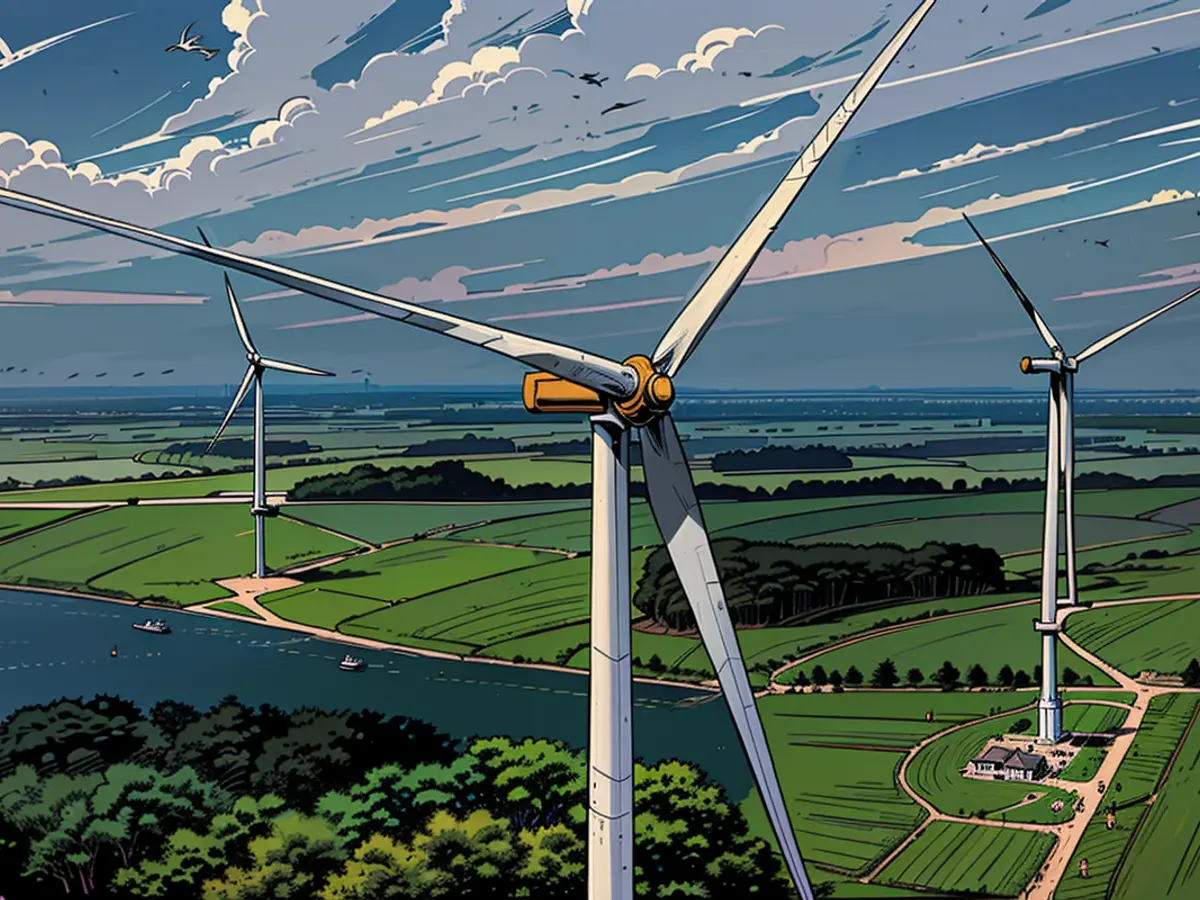Expenses ballooning for the advancement of alternative energy sources
The German federal government faces a massive budget outlay of 8.7 billion Euro for the subsidization of renewable energy projects. This significant expenditure is revealed in a letter penned by Financial State Secretary Florian Toncar to Helge Braun, head of the Budget Committee in the German Bundestag, and obtained by the German Press Agency. Earlier reports on the matter were published by "Bild" newspaper and "Handelsblatt".
Initially, the Federal Ministry of Economics had sought an overspending of 8.769 billion Euro for the encouragement of renewable energy initiatives. The funds are deployed for the support of these ventures as per the Renewable Energy Sources Act (EEG). By law, a specific account was created to manage these funds, overseen by the transmission network operators. Historically, discrepancies between expenditures and revenues were covered by electricity consumers through an EEG surcharge. However, with theabolishment of the EEG surcharge, the funding now comes directly from the federal budget. When the power exchange's electricity price is low, EEG financing costs escalate.
In Toncar's letter, he acknowledges that the drastic drop in electricity prices and the subsequently increased financing needs were not anticipated when the budget was likely passed in 2024. At present, the EEG account's funds are nearly depleted.
CDU energy politician Andreas Jung expressed his sentiments on the matter: "The impending financial burden of this magnitude due to assuming EEG payments was long predictable. Rather than taking preventive measures, the Traffic Light Coalition manipulated the figures and misdirected the supposedly earmarked CO2 revenues elsewhere." The Traffic Light Coalition must now guarantee complete transparency before prioritizing climate protection and fostering cost efficiency during the energy transition.
The Federal Ministry of Finance has left the door open for a supplementary budget this year. As the German economy has not performed as expected, the cyclical component within the debt brake allows for a larger net credit intake, which could max out at 11 billion Euro. Initially, a net credit intake of 39 billion Euro for the current year was planned within the debt brake parameters.
Read also:
The German government's promotion of renewable energies through the Renewable Energies Act has led to additional costs, with the EEG account nearly depleted due to lower electricity prices and higher financing needs. The additional budget outlay for renewable energy projects is worth billions, exceeding the initial budget allocation by millions and now primarily funded from the federal budget.








